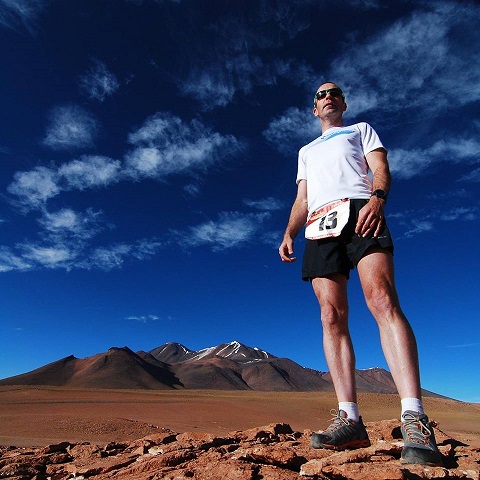The
12th IAU 24 Hour World Championships took place in Belfast Victoria Park on
July 01st/02nd 2017. This was thanks to Ed Smith, the Energia 24 hour
Race Director and a dedicated team of volunteers along with the title sponsor
Schneider Electric.
In addition to the World Championship Race there were also 100 extra places available in the Energia 24 hour open race running at the same time. The combined event also included the AAI National Championships and for the first time the World Masters Association also included age group categories.
In addition to the World Championship Race there were also 100 extra places available in the Energia 24 hour open race running at the same time. The combined event also included the AAI National Championships and for the first time the World Masters Association also included age group categories.
In the
main event there were 300 runners from 40 Countries and Ireland was well
represented by an experienced squad from the four provinces of 6 Male & 6
Female Athletes with a support crew of 6.
Men's Team:
1.
Eddie Gallen - Captain
2.
Eoin Keith.
3.
Aidan Hogan.
4.
Tim Brownlie.
5.
Daragh O'Loughlin.
6.
Malcolm Gamble.
Women's Team.
1.
Ruthann Sheahan.
2.
Amy Masner.
3.
Louise Smart.
4.
Yvonne Naughton.
5.
Susan McCartney.
6.
Catherine Guthrie.
Support Crew:
1.
John O'Regan - Manager
2.
Kevin Belton.
3.
Gary McConville.
4.
Liam Tilly.
5.
Louis Byrne.
6.
Philip Bourke.
In
the men´s race, Yoshihiko Ishikawa (JPN) won with a distance of 270.870km. He
was followed by
Sebastian Bialobrzeski (POL) in 2nd place with a distance of 267.187km and Johan Steene (SWE) finished in 3rd place with a distance of 266.515km.
In the women´s race, Patrycja Bereznowska (POL) won with a distance of 259.991km. The distance run by Bereznowska is a World's Best Performance (pending ratification). She was followed by Aleksandra Niwinska (POL) with a distance of 251.078km and Katalin Nagy (USA) finished in 3rd place running 248.970km.
In the team´s competition, Japan won the men´s division with a combined distance of 786.463km followed by Poland in second with 766.934km, France in third with a distance of 758.599km and Ireland finished in 9th with 716.993km.
In the women´s division, Poland won the team title with 741.886km. United States of America finished second with 740.856km, Germany third in 691.274km and Ireland finished in 8th with 638.072km.
In the women´s race, Patrycja Bereznowska (POL) won with a distance of 259.991km. The distance run by Bereznowska is a World's Best Performance (pending ratification). She was followed by Aleksandra Niwinska (POL) with a distance of 251.078km and Katalin Nagy (USA) finished in 3rd place running 248.970km.
In the team´s competition, Japan won the men´s division with a combined distance of 786.463km followed by Poland in second with 766.934km, France in third with a distance of 758.599km and Ireland finished in 9th with 716.993km.
In the women´s division, Poland won the team title with 741.886km. United States of America finished second with 740.856km, Germany third in 691.274km and Ireland finished in 8th with 638.072km.
The next 24 hour World Championships is proposed for July 2019 in Irdning, Austria.
National Championships Female
1st
Amy Masner (Parnell AC) 228.581Km
2nd
Louise Smart (Co Antrim Harriers)
205.608Km
3rd
Susan McCartney (Belfast Association of Rock Climbers & Fell Runners) 203.883Km
National Championships Male
1st
Eoin Keith (Sportsworld) 248.436Km
2nd
Alex O'Shea (St Finbars AC) 244.253Km
3rd
Tim Brownlie (Willowfield Temperance Harriers AC.) 242.662Km
We also had some results in the World Masters Association Race with Collette O'Hagan (Marathon Club of Ireland) winning Gold medal in her age group with a distance of 142.085km and Eoin Keith (Sportsworld) winning a category Bronze medal with his distance of 246.784km. Eoin Keith’s distance of 248.436Km is a new National Record beating the previous record of 248.392Km set by Thomas Maguire in Monaco on the 21st/22nd Nov 2009.
For selection purposes the minimum standard required for the men's team is the International B standard of 220km. For the women's team the minimum required distance is the International B standard of 200km. Achieving the standard does not guarantee selection as places are limited.
Next year the Energia 24 hour race returns to the Mary Peter's Track and with the extra interest it's sure to sell out early. This race will again host the AAI National Championships and notable results will be considered for future Team selection.
For enquiries regarding next year’s Energia 24 please
contact the race director Ed Smith at Ed_n_Smith@hotmail.com
John
O'Regan
International
Teams Coordinator for Ultra Running.


